Positive Psychology & Film: Films Featuring Ethnic Minorities
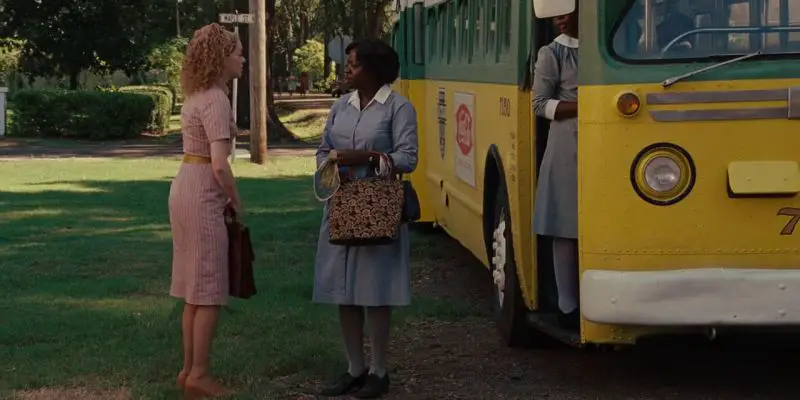
Laurie Agard studied Psychology and Writing in graduate school after…
“Making sense of life’s challenges helps us define and anchor our identities, which bolsters optimism about our futures and fosters more effective coping.” — Sonja Lyubomirsky
Studies show for many reasons it’s critical that media show that all people belong. However, very few films in the United States are made by and about ethnic minorities. This means their stories aren’t seen or told.
Note: This article is part of a series about positive psychology and film, please find the first here.
Doing Things Differently
There are a number of ways that racial and ethnic minority families may differ from the majority culture most often portrayed in American film. They may practice religion differently. They may eat different foods. They may have different beliefs about medicine. Their sense of family obligations may be different. Their parenting and gendered patterns of behavior may be different, which may make them care for, communicate with, and discipline their children differently; view authority and hierarchies in relationships differently; and may make them parent more or less strictly, too.
In order for their children to develop good coping skills and tools necessary to create a good self-image, research indicates it’s important for minority parents to teach their children about oppression, discrimination and prejudice. This important socialization process helps instill a sense of identity and pride associated with their ethnic group even if popular culture sees the status of their culture in a lower light.
Furthermore, many ethnic minorities experience a number of cross-cultural transition problems related to the status of their ethnicity. For example, they aren’t sure if they are supposed to feel shame and humiliation about some past action of their nation or the poverty status of their ethnicity in the United States or feel proud that they are now American.
Some decide to raise their children in all-white neighborhoods and never discuss their background with their children. Others report feeling like they are constantly tasked with dealing with questions about their racial differences, as if their race, shape of their eyes, accents, and skin color have suddenly become the dominant factors in how the majority culture perceives and interacts with them. Some families feel they can’t blend in, so they remain in isolation.
Ethnic Socialization
Consequently, it’s important to take note of recent studies about ethnic socialization. This research is of particular importance to ethnic minorities raising children in the United States. Like their parents, children of immigrants may have a lot of confusion about their culture and extended family. For example, they may have been taught openly in American schools about individualism, and they don’t understand the structural vulnerabilities their parents have faced or the collectivistic values of their family. Those of the Hispanic culture also may take on traditional Hispanic gender roles, for example, but feel conflicted or angry when they do.
Research shows that ethnic socialization has become an important predictor of ethnic identity for both adolescent boys and girls. Minority children with parents who have deliberately taught them about their culture and ethnicity have shown to be more comfortable with themselves and with exploring and showing interest in their heritage. Moreover, studies show that Hispanic parents in particular often assume that their girls will be the carrier of their culture, and often parents spend more time teaching their adolescent daughters about Hispanic issues than their boys.
American Values In Perspective
American culture values specialization, independence, and competition and tends to see each person as a separate, autonomous being. Our highly individualized culture fosters less sacrifice for the group, but rather prioritizes individual goals and desires. This makes it extremely difficult for people who are coming into the country and remaining isolated. People do not and cannot operate in isolation.
In order to develop resiliency, children need warmth, connection to community, and good social networks. In addition to encouraging creativity and autonomy, teaching children about the family’s heritage and tradition can help build their protective factors, which will help them be resilient to issues they face in the future. Resilience is one of positive psychology’s key constructs.
The following films present different pictures and challenges faced by ethnic minorities and their families. If you’ve seen them before, it can be interesting to watch them again and pay attention to resilience, to the characters’ strategies to life, and to how film inspires new perspectives. Film can play an important role in ethnic socialization and be an interesting way of connecting to others and accessing those human qualities that are best in us.
Akeelah and the Bee (2006)

Character Strengths and Virtues: wisdom, love of learning, curiosity, teamwork and community, perseverance, hope, self-regulation.
Themes: Inner-city realities; African American girl overcoming sexism, poverty, ridicule, and her single-mom’s doubts about the importance of her love of learning; winning isn’t everything.
Antwon Fisher (2002)

Character Strengths and Virtues: hope, resilience, forgiveness, kindness and caring, bravery, leadership, wisdom and perspective.
Themes: African American foster child, abuse, using creative interventions, structure and rules, military, family, addresses some gender roles and dating scripts.
Born into Brothels: Calcutta’s Red Light Kids (2004)

Character Strengths and Virtues: resilience, zest.
Themes: prostitution, poverty, the triumph of human spirit.
Glory Road (2006)
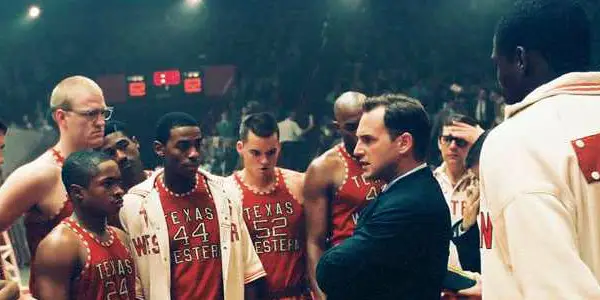
Character Strengths and Virtues: teamwork, hope, justice, perseverance.
Themes: the first all-black basketball team to go to the NCAA finals, discrimination, segregation.
Japanese Story (2003)

Character Strengths and Virtues: judgement, critical thinking.
Themes: understanding different cultures, helplessness.
The Help (2011)
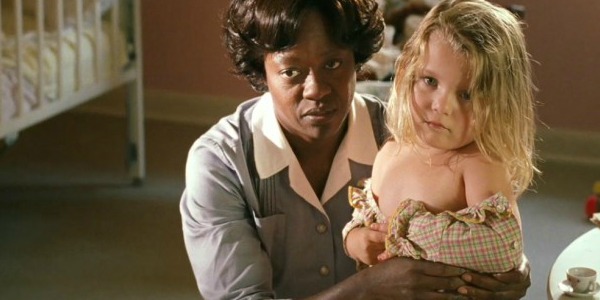
Character Strengths and Virtues: justice, fairness, bravery, perseverance, kindness, resilience.
Themes: mistreatment of African Americans, segregation, sexism.
MacFarland USA (2015)
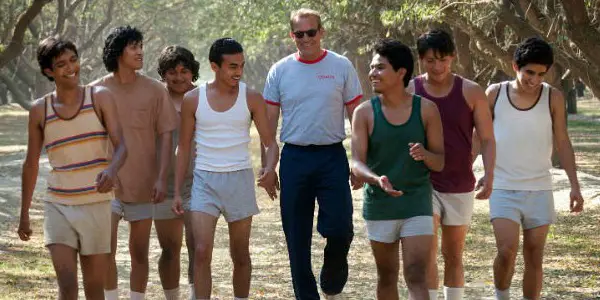
Character Strengths and Virtues: teamwork, leadership, kindness, zest, perseverance, resilience, hope, humanity, love.
Themes: teamwork and leadership in sports, migrant farm workers, understanding different cultures, finding meaning and purpose in work, familial love.
Maria Full of Grace (2004)
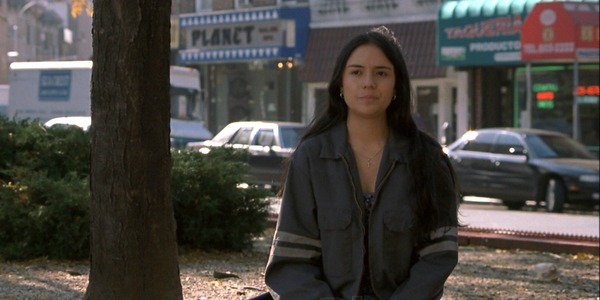
Character Strengths and Virtues: temperance, self-regulation.
Themes: teen pregnancy, drug mules, illegal immigration.
Rabbit Proof Fence (2002)
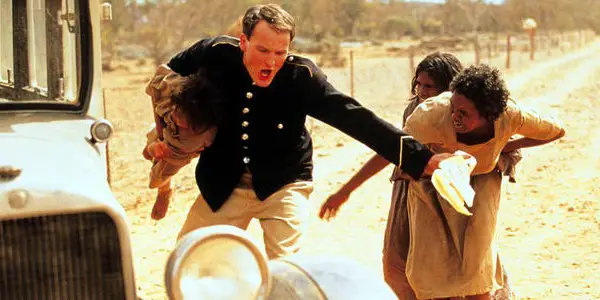
Character Strengths and Virtues: resilience, perseverance.
Themes: Australian aboriginal girls escape a government camp trying to assimilate them into White culture.
The Secret Life of Bees (2008)
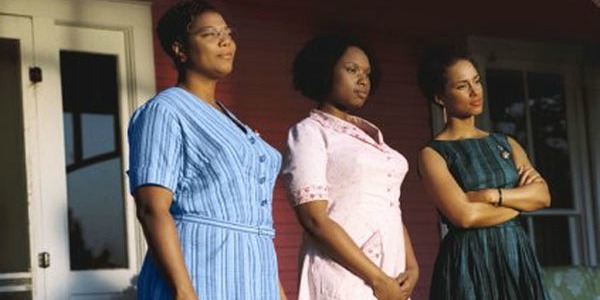
Character Strengths and Virtues: passion for learning, familial love.
Themes: orphan, abuse, beekeeping.
Skin (2008)

Character Strengths and Virtues: honesty.
Themes: young black woman with white parents struggling to understand self, over-protective father who overuses his control, true story about South Africa during the apartheid era.
Spanglish (2004)

Character Strengths and Virtues: humanity, love.
Themes: mother and daughter bond, Mexicans acculturating into the United States.
In their books Positivity and Learned Optimism, Barbara Frederickson and Martin Seligman respectively cite research that links resilience with long-term happiness and well-being. In the The Happiness Advantage, renowned Harvard professor Shawn Achor also writes about it, “Success is about more than simple resilience. It’s about using that downward momentum to propel ourselves in the opposite direction. It’s about capitalizing on setbacks and adversity to become even happier and even more motivated.”
Seligman maintains that in situations where escape is impossible, people give up trying and remain passive. Seligman also indicates that persistence, combined with interpersonal skills, might help children develop resiliency.
What impact do you think that lack of filmmaking by and about ethnic minority women in particular has on American culture? Does it impact people’s ability to dispute majority cultural beliefs? Can film be used to help with ethnic socialization, fostering racial pride, and confronting institutionalized racism? Does media need to show that all people belong? If so, are there steps the film industry can take toward making that happen?
Share your thoughts in the comments.
Positive Psychology & Film Series
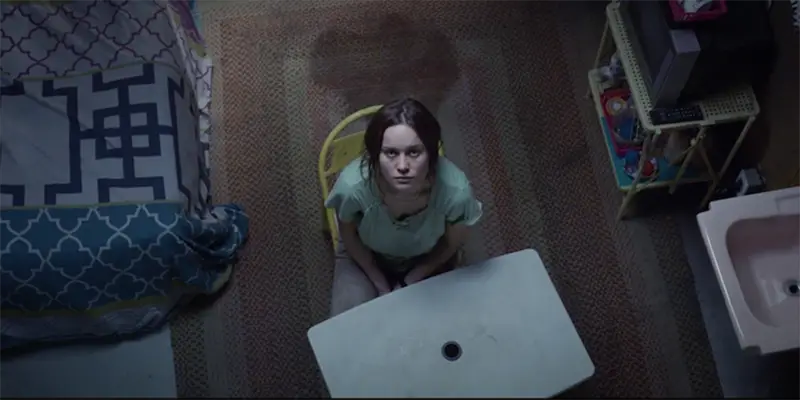
Positive Psychology And Film
You can improve your life by paying attention to how films use characters and themes to explore human values, virtues, and character strengths.
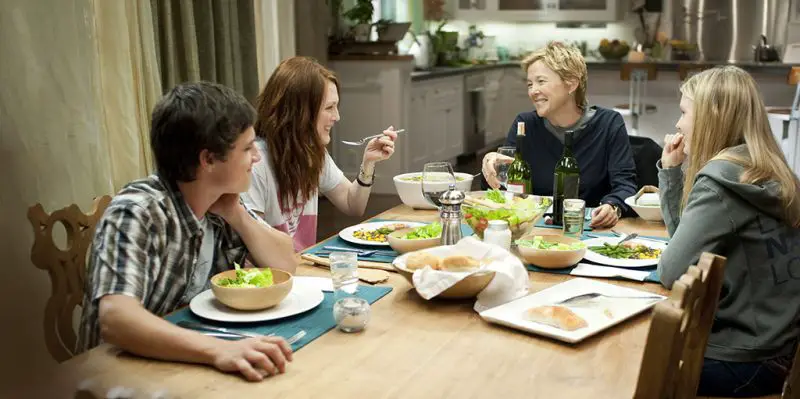
Positive Psychology & Film: Love
“Human beings are starved for love.” – Erich Fromm This article is part of a series. Find the first part here.
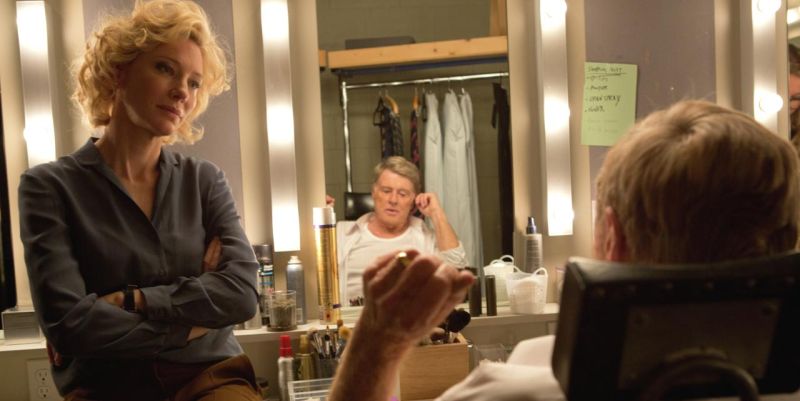
Positive Psychology & Film: Women’s Careers
A common stereotype in film is that women don’t work and have no career. What can we learn from the films in which women’s careers are at the forefront?
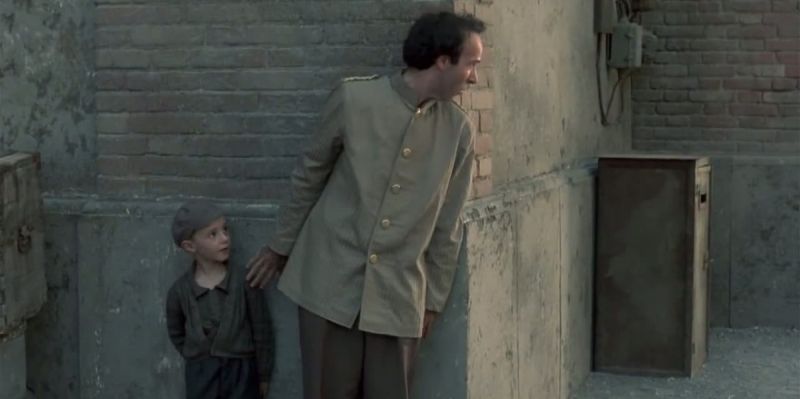
LIFE IS BEAUTIFUL: Through The Lens Of Positive Psychology
In this part of Positive Psychology & Film, Laurie Agard interprets Life Is Beautiful, the inspiring and gut-wrenching Italian war film.
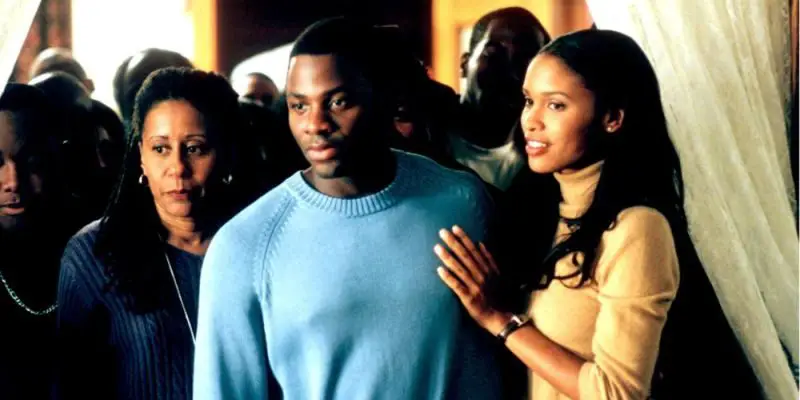
Positive Psychology & Film: Atypical Dating Scripts
Films and culture provide us with scripts that help us make sense of dating and sexuality. Unfortunately, many of the scripts are outdated.
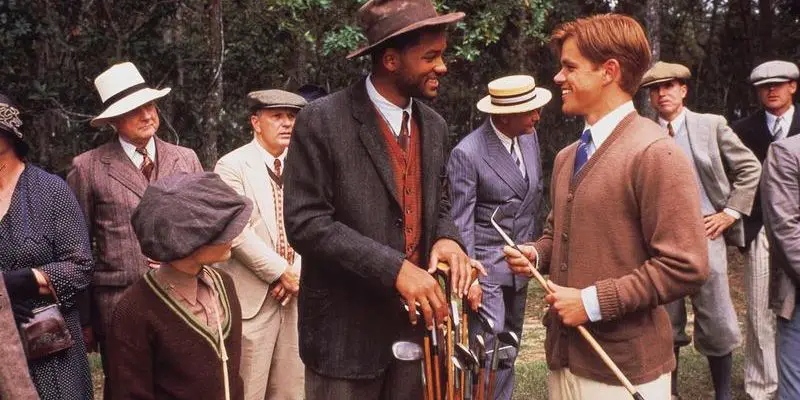
Positive Psychology & Film: Flow
“Inside each and every one of us is one true authentic swing … Somethin’ we was born with … Somethin’ that’s ours and ours alone …

Positive Psychology & Film: Parenting With Children’s Films
“Interest can produce learning on a scale compared to fear as a nuclear explosion to a firecracker.” Stanley Kubrick on the importance and power of curiosity. As educators and parents we want to to care for, nurture, mentor, socialize, and provide for our children to the best of our ability.

SILVER SKIES: A Positive Psychology Film Analysis
Silver Skies shows us how full of love, passion, friendship and fun the lives of the elderly are, and how we can learn from this depiction.
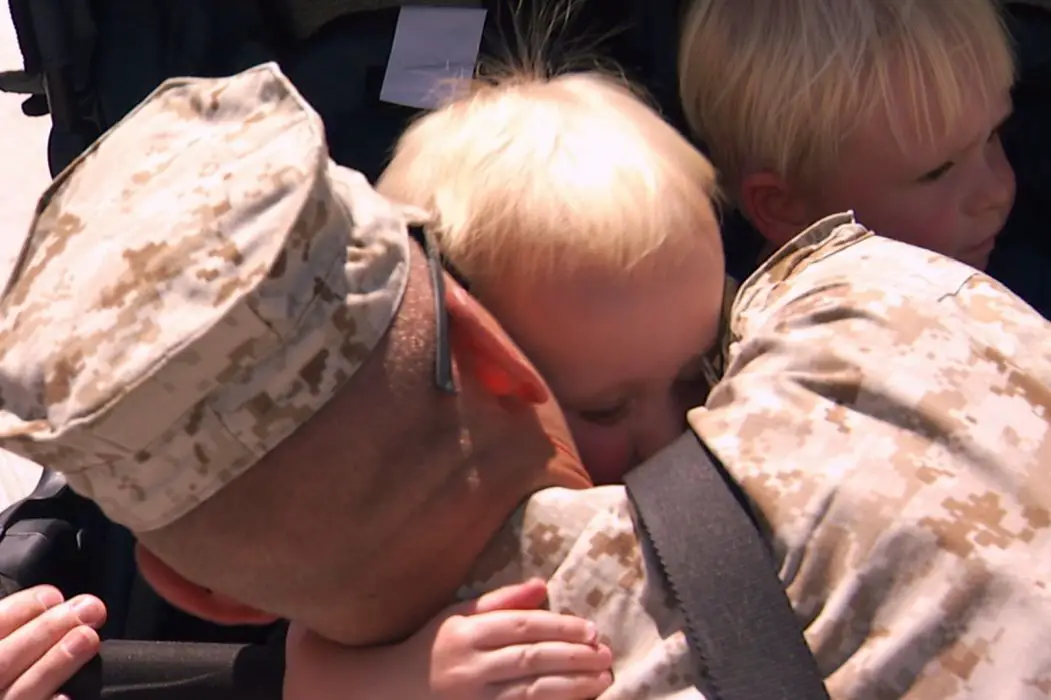
WHILE TIME STANDS STILL: A Positive Psychology Film Review
Elena Miliaresis’ documentary While Time Stands Still tells the story of the hardships of military families – Laurie Agard considers the psychological aspects.
Does content like this matter to you?
Become a Member and support film journalism. Unlock access to all of Film Inquiry`s great articles. Join a community of like-minded readers who are passionate about cinema - get access to our private members Network, give back to independent filmmakers, and more.
Laurie Agard studied Psychology and Writing in graduate school after becoming a Director member of both the Directors Guild of America and the Academy of the Television Arts and Sciences. She associate produced ABC’s Secret Millionaire and wrote, directed, and produced two independent films that premiered on HBO, ABC Family, we TV, as well as networks such as Fox Latin America, Sky TV, Starz, Showtime, and Encore in 45 territories around the world. Her films have received New Comer of the Year awards and Best Children's Feature awards from prestigious organizations such as Kids First!, Hollywood Youth in Film, and the New York Film and Television Festival. She co-directed the Directors Guild of America’s first ever tribute film for and about its female members.













